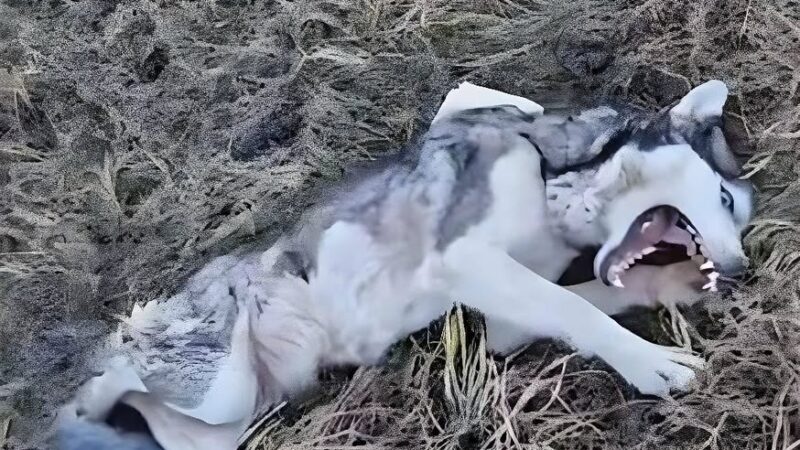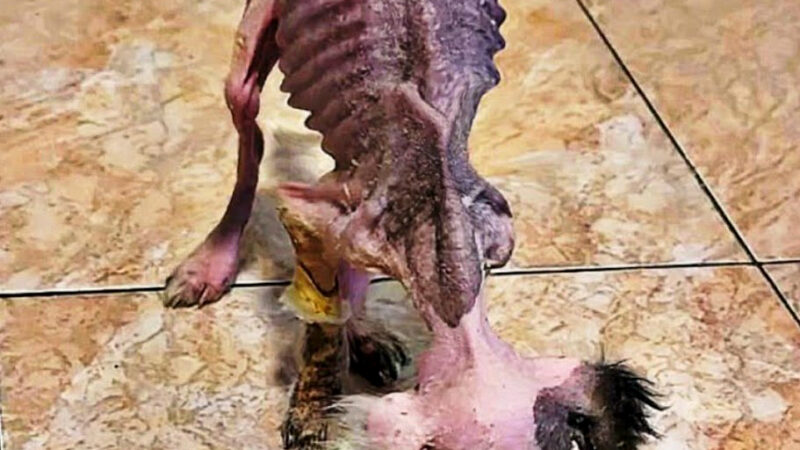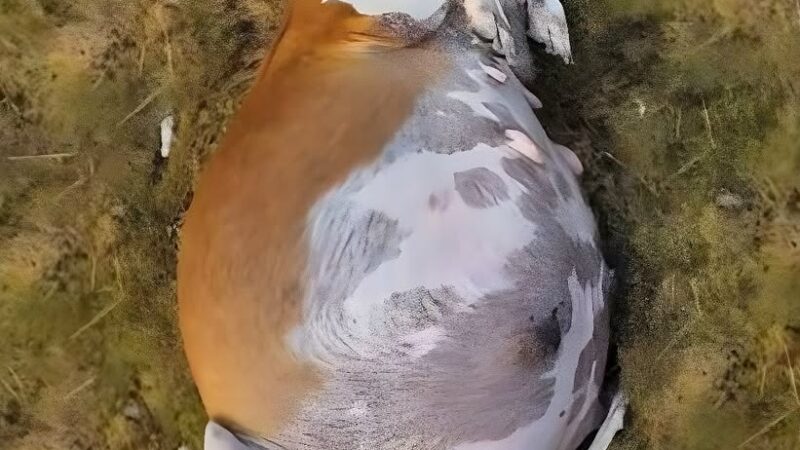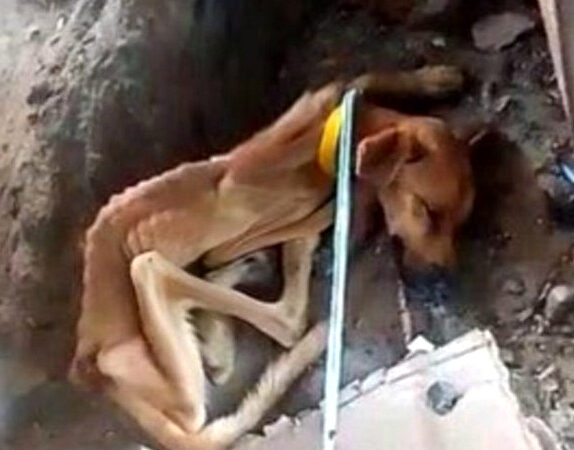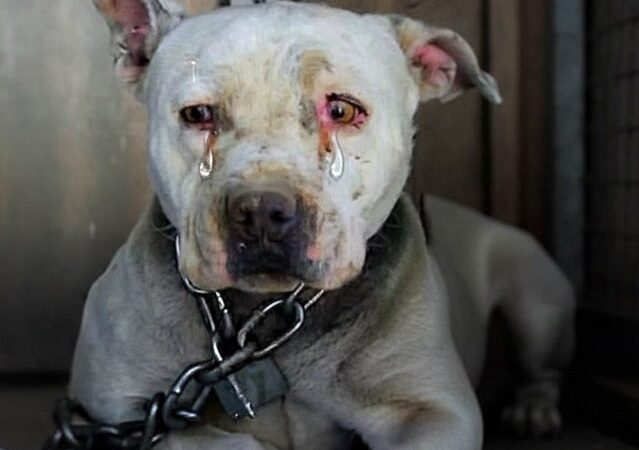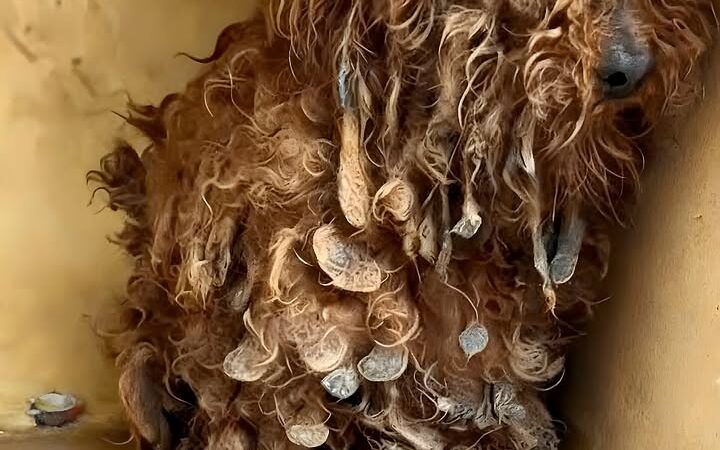The Whisper That Saved a Life: Biscuit’s Journey from the Shadows to a Second Chance

The alley had become his prison. Hungry, frail, and forgotten, the little puppy scrounged through piles of rubbish, his ribs showing, his spirit fading. Each day brought less food, less hope, until even stale bread was too dry to swallow. Curled in the shadows, he was ready to give up. Then came a voice. Gentle, kind. A woman knelt beside him, her hand reaching out with warmth he hadn’t felt in so long. For the first time, he crawled toward trust instead of fear. She lifted him into her arms, whispering, “You’re safe now. You won’t be hungry anymore.” From that moment, everything changed. The puppy, now named Biscuit, healed. His fur grew soft, his eyes brightened, and his belly was never empty again. No longer abandoned, he had a home—and a family who loved him.
That initial transition from the cold, unforgiving pavement of the alley to the warm embrace of his rescuer was more than a physical journey; it was a crossing into another dimension of existence. The first car ride was a terrifying cacophony of rumbles and strange motions, yet the gentle hand stroking his back was a constant, reassuring anchor in the storm of new sensations. He burrowed into the fabric of her coat, the scent of her kindness overwriting the stench of decay that had clung to him for so long. When they arrived at what he would soon learn was ‘home,’ the world expanded into a dizzying array of soft surfaces, clean floors, and the overwhelming, delicious aroma of food that didn’t have to be fought for.
His first bath was a revelation. He trembled as the warm water cascaded over his emaciated frame, washing away not just the grime and filth, but metaphorically, the deep-seated memory of his past life. With each gentle scrub, layers of neglect were peeled back to reveal the beautiful puppy that had been hidden underneath. Afterwards, wrapped in a fluffy towel that felt like a cloud, he was presented with a bowl of food. It wasn’t scraps or garbage; it was a full bowl, just for him. He ate tentatively at first, his survival instincts screaming that this bounty could be snatched away at any moment. He would eat a little, then look up with wide, questioning eyes at the woman, who simply smiled and nodded, urging him on. That night, for the first time in his short, difficult life, Biscuit slept on a soft bed, his tiny body twitching as he dreamed, not of fear and hunger, but of the gentle voice and the safe, warm darkness that now surrounded him.
The healing, however, was a process that went far beyond a full belly and a clean coat. His body had to learn that starvation was no longer the norm, but his mind and spirit had a much longer journey ahead. In the beginning, old habits died hard. He would flinch at sudden movements, expecting a kick or a blow. A raised voice during a phone call would send him scurrying under a chair, his body reliving a trauma his new family would never understand. He would try to hoard pieces of food, pushing them into corners with his nose, a desperate act of self-preservation from a time when the next meal was never guaranteed. His rescuer, a woman named Clara, understood this. She met his fear not with frustration, but with boundless patience.
Clara’s movements became slow and deliberate around him. Her hands were always associated with gentle pets or tasty treats, slowly reprogramming his understanding of human touch. She spoke to him in a constant, soothing tone, making her voice a soundtrack of safety. When he hid food, she didn’t scold him; she would simply add a little extra to his bowl at the next meal, a silent promise that there would always be more. She sat on the floor with him for hours, not forcing interaction, but simply sharing the space, allowing him to approach on his own terms. The first time he tentatively licked her hand, it was a monumental victory. The first time he fell asleep at her feet in the open instead of in a defensive hiding spot, it was a declaration of trust. He was learning the language of love, a language he had never been taught.
As Biscuit’s emotional wounds began to scar over, a playful, curious personality started to emerge from the shell of his former self. He discovered toys, initially approaching a squeaky ball with suspicion, then with unbridled, clumsy joy. The concept of “play” was entirely foreign, but once he understood it, he embraced it with the full force of a puppy who had a lot of lost time to make up for. His first walk in a park was another sensory explosion. The feeling of soft grass under his paws, so different from the harsh concrete and broken glass of the alley, made him hop and leap with delight. He learned that a leash was not a tether of control, but a ribbon of connection that linked him to the person who kept him safe.
Biscuit’s transformation was mirrored in Clara’s own life. The quiet stillness of her home was replaced by the cheerful click-clack of his paws on the floor, the soft thud of his tail against a table leg, and his contented sighs as he slept. He became her shadow, her confidant, and her constant source of laughter. He reminded her of the simple, profound joys of the present moment—the warmth of the morning sun, the thrill of a good walk, the deep comfort of companionship. In rescuing him, she found she had also rescued a part of herself she didn’t know was lost. He filled her life with an unconditional love that asked for nothing in return but kindness. He was not just a pet she owned; he was a testament to the resilience of life and the transformative power of a single compassionate choice. Biscuit hadn’t just found a home; he had created one.
His story is a powerful reminder that heroes are not mythical figures; they are ordinary people who refuse to look away. They are the ones who stop the car, who kneel down in the dirt, who offer a gentle word to a creature in despair. For every Biscuit who finds a forever home, there are countless others still waiting in the shadows, their spirits dimming with each passing day. They are hidden in the alleys and abandoned lots of our cities, waiting for their own whisper of hope. Biscuit’s journey from a prison of rubbish to a paradise of love is more than just a heartwarming tale; it is a call to action. It proves that no life is too broken to be healed, and that the greatest changes often begin with the smallest acts of kindness—a decision to see the forgotten, to hear the voiceless, and to believe in the profound, life-altering power of a second chance.

